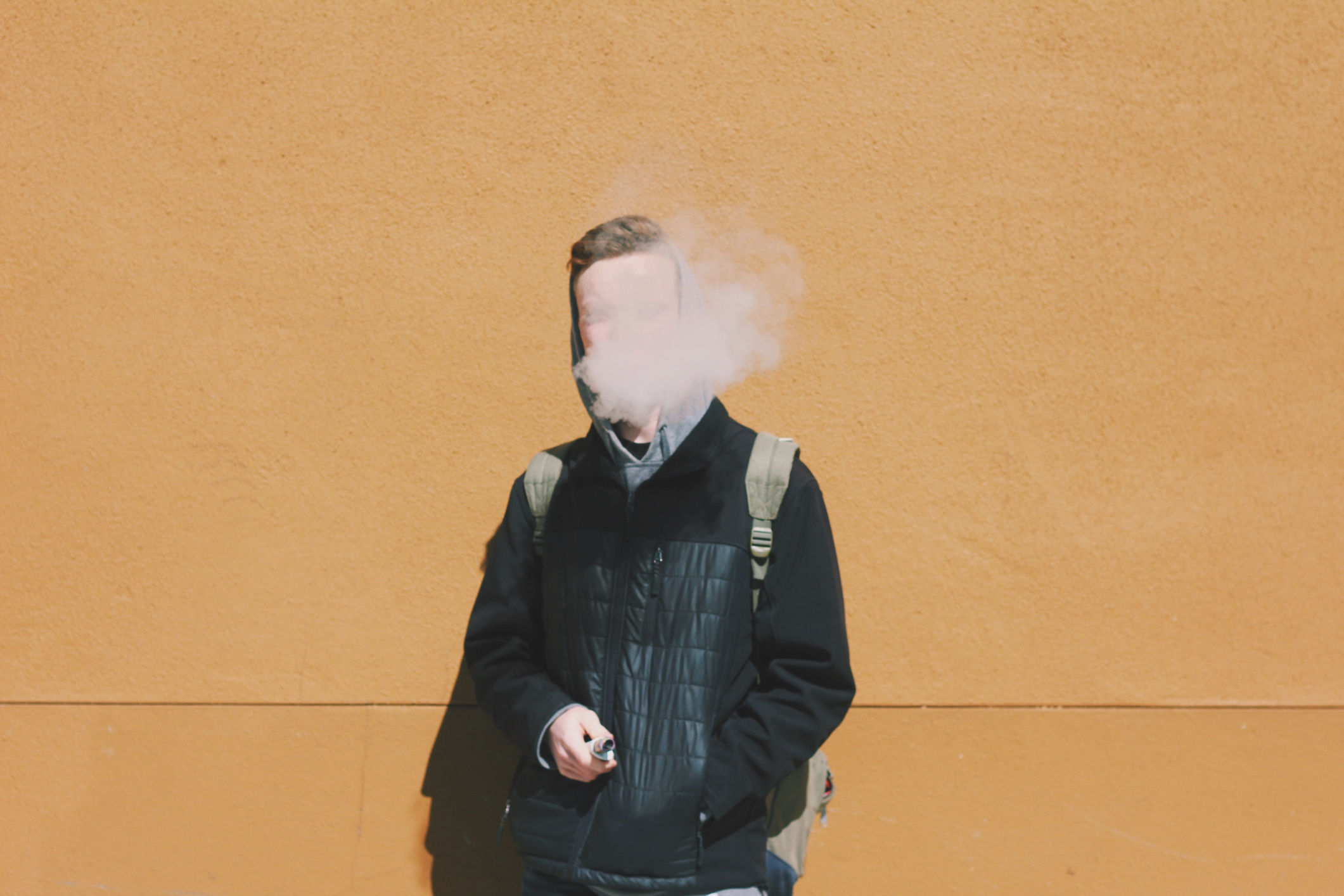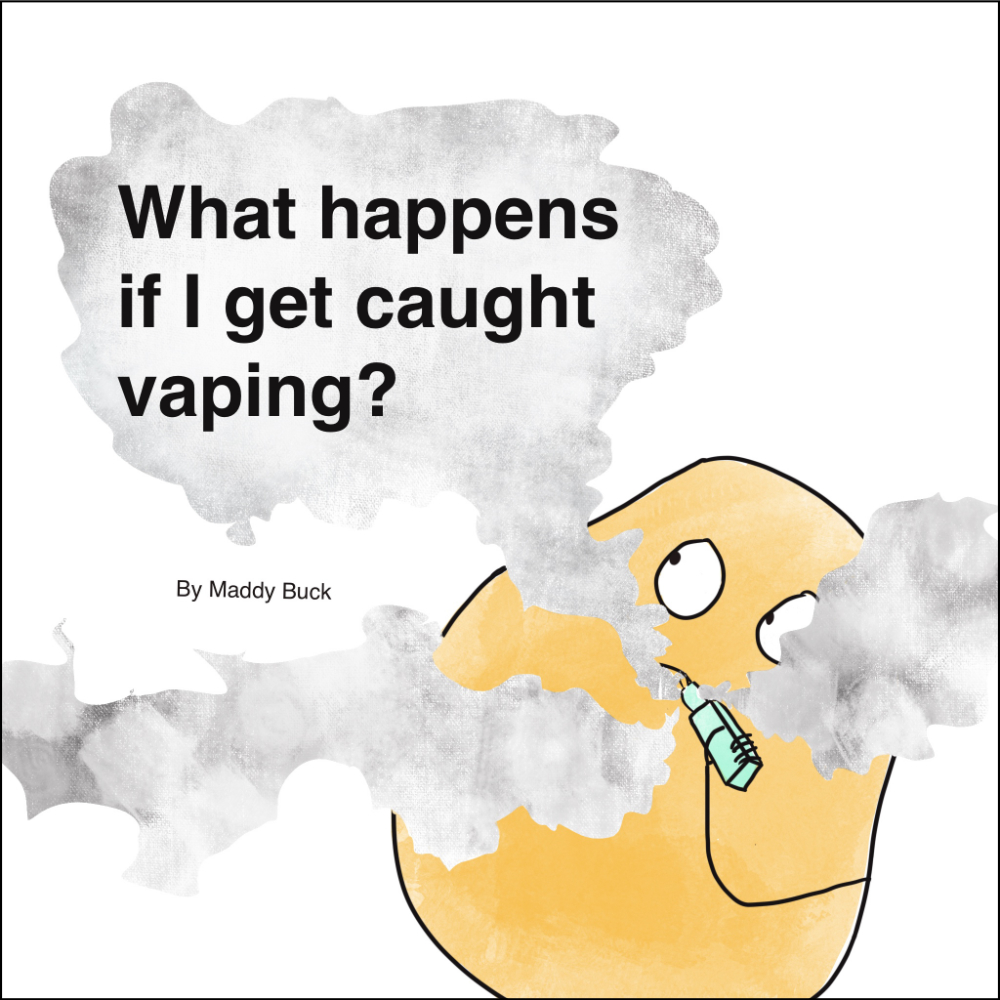When Is it Legal for Teens To Buy Tobacco or E-cigs?
Even though teens are smoking less cigarettes over the years, other tobacco or nicotine products like vape pens, JUULs, and other kinds of e-cigarettes are continuing to grow in popularity for adolescents.
In 2019, the federal government passed a new law increasing the minimum legal sales age for the retail sale of tobacco products from 18 to 21. And most states also now have laws making the legal age for possessing or using e-cigarettes and tobacco 21 years old.
So if you’re a minor and “hit the nic,” what can happen if you get caught?
To learn about this topic in comic form, click on the image below!
Federal Law
Congress passed “Tobacco 21″ to limit youth access to tobacco products by raising the age for the sale of tobacco products to 21. Included in this federal tobacco law was the “Synar Amendment.” This amended the Public Health Service Act so that states wanting to receive federal grant money would also have to pass laws increasing the legal age to purchase tobacco products to 21.
The U.S. Food and Drug Administration (FDA) offers free age verification tools to help tobacco retailers comply with the federal minimum age of sale law. The FDA also conducts compliance checks to make sure minors cannot purchase tobacco products from retailers. That means convenience stores and other retailers will be much more careful about who they sell tobacco and vape cartridges to.
So federal law makes it illegal for teenagers (or anyone under the purchase age of 21) to buy tobacco products but doesn’t seem to prevent minors from consuming them. But before you start singing “Pass Me the Hookah,” remember that more laws about tobacco use can be found closer to home.
State Law
Almost all states have passed tobacco control laws placing age restrictions on e-cigarette and tobacco use and possession. Generally, it’s against the law for a minor to purchase, attempt to purchase, possess, or use any product containing tobacco or nicotine. Heads up to any student-athletes: This also includes chewing and other kinds of smokeless tobacco, so stick to the sunflower seeds in the dugout.
Some states used to have exceptions to their prohibitions against the sale, use, and possession of tobacco products to anyone under the age of 21. In California, active duty military personnel who are 18 years of age or older were exempted from the law if they could present a U.S. military-issued ID card to prove their age.
Many local governments across the country have also passed more restrictive policies against the tobacco industry, especially regulations targeting individuals under 21 years of age. Because of the recent change in federal law and the focus on vaping, state and local laws vary a lot and are in flux, so make sure to check the laws where you are. More information about how state and local laws interact and affect tobacco protection efforts can be found on the Centers for Disease Control and Prevention (CDC) website.
What’s The Punishment?
While tobacco or nicotine-related offenses don’t rise to the level of misdemeanor criminal offenses, they are still against the law. If you’re under the legal age and caught with tobacco or nicotine in a state that penalizes the possession or use of tobacco by a minor, you could be charged with a petty offense or infraction and receive some kind of ticket or citation. The penalties for tobacco offenses by minors vary by state. Typically, the punishment in most states includes fines, community service, and participation in tobacco or substance-abuse programs.
If you’re caught using tobacco or nicotine at school, on school transportation, or at a school-related event, you’ll be disciplined according to your school district’s policies. Many schools have an active campaign for tobacco-free kids in place where the focus is less on punishment and more on awareness and prevention (Don’t forget: there are zero health benefits for nicotine or tobacco.). Chances are parents of minor children remember their school’s “D.A.R.E.” program, now known in most schools as the “keepin’ it REAL” program.
Related Resources:
You Don’t Have To Solve This on Your Own – Get a Lawyer’s Help
Meeting with a lawyer can help you understand your options and how to best protect your rights. Visit our attorney directory to find a lawyer near you who can help.







